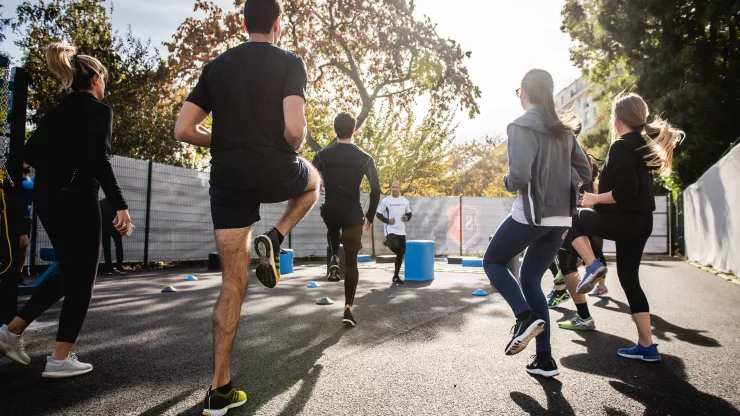Jump to Section
Introduction: Why Mental Health is Important
Mental health is just as important as physical health. It affects how we think, feel, and behave, and it impacts our overall well-being.
Taking care of our mental health is essential for living a happy and fulfilling life.
Unfortunately, mental health issues are prevalent, with one in four people worldwide experiencing a mental health disorder at some point in their lives.
Fortunately, there are simple habits we can adopt to boost our mental health and wellness.
Habit 1: Prioritize Self-Care and Rest
Self-care is a crucial habit for maintaining good mental health and wellness. It involves taking care of your physical, emotional, and mental health needs.
Prioritizing rest is an essential aspect of self-care. Getting enough sleep, taking breaks, and practicing relaxation techniques like deep breathing or meditation can help reduce stress and improve your overall mental health.
Here are some self-care practices you can incorporate into your daily routine:
- Take a relaxing bath or shower.
- Read a book or listen to music.
- Take a walk in nature.
- Practice gratitude journaling.
- Do something creative, like painting or writing.
- Spend time with loved ones.
Habit 2: Incorporate Daily Exercise
Physical exercise is not only good for your body but also for your mind. Regular exercise can help reduce symptoms of anxiety and depression, improve your mood, and boost your self-esteem.
Exercise also releases endorphins, which are natural mood boosters.
Here are some ways to incorporate exercise into your daily routine:
- Take a walk during your lunch break.
- Join a gym or fitness class.
- Do a home workout.
- Take the stairs instead of the elevator.
- Go for a bike ride or swim.
Habit 3: Practice Mindfulness and Meditation
Mindfulness and meditation are practices that help you focus on the present moment and reduce stress and anxiety. Mindfulness involves paying attention to your thoughts, feelings, and bodily sensations without judgment.
Meditation involves focusing on a specific object, thought, or activity to calm your mind.
Here are some mindfulness and meditation practices you can try:
- Practice deep breathing exercises.
- Practice yoga or tai chi.
- Take a mindful walk.
- Use a guided meditation app.
- Attend a meditation or mindfulness class.
Habit 4: Connect with Positive Relationships
Positive relationships are essential for good mental health and well-being. Connecting with others can help reduce stress, improve your mood, and provide a sense of belonging.
Positive relationships can come from family, friends, or community groups.
Here are some ways to connect with positive relationships:
- Join a social club or group.
- Volunteer for a cause you care about.
- Schedule regular catch-ups with friends and family.
- Attend community events.
Habit 5: Cultivate a Growth Mindset
Having a growth mindset means believing that you can improve and grow over time. It involves embracing challenges, learning from mistakes, and being open to feedback.
Cultivating a growth mindset can help improve your self-esteem, reduce anxiety, and increase resilience.
Here are some ways to cultivate a growth mindset:
- Embrace challenges as opportunities to learn.
- Focus on progress rather than perfection.
- Learn from your mistakes.
- Seek feedback from others.
- Celebrate small wins.
Conclusion: Small Changes, Big Impact
Incorporating these simple habits into your daily routine can have a significant impact on your mental health and wellness. Prioritizing self-care, incorporating daily exercise, practicing mindfulness and meditation, connecting with positive relationships, and cultivating a growth mindset can help you feel happier, more resilient, and better equipped to handle life’s challenges.
FAQ
How can I practice self-care?
Self-care involves taking care of your physical, emotional, and mental health needs. It can include practices like getting enough sleep, taking breaks, and practicing relaxation techniques like deep breathing or meditation.
Other self-care practices can include taking a relaxing bath, reading a book, spending time with loved ones, or doing something creative.
How can exercise benefit my mental health?
Regular exercise can help reduce symptoms of anxiety and depression, improve your mood, and boost your self-esteem. Exercise also releases endorphins, which are natural mood boosters.
Some ways to incorporate exercise into your daily routine include taking a walk during your lunch break, joining a gym or fitness class, or doing a home workout.
What is mindfulness, and how can I practice it?
Mindfulness involves paying attention to your thoughts, feelings, and bodily sensations without judgment. It can help reduce stress and anxiety.
Some ways to practice mindfulness include deep breathing exercises, practicing yoga or tai chi, taking a mindful walk, using a guided meditation app, or attending a meditation or mindfulness class.

With a deep passion for personal development, Ben has dedicated his career to inspiring and guiding others on their journey towards self-improvement.
His love for learning and sharing knowledge about personal growth strategies, mindfulness, and goal-setting principles has led him to create My Virtual Life Coach.
Contact Ben at [email protected] for assistance.




